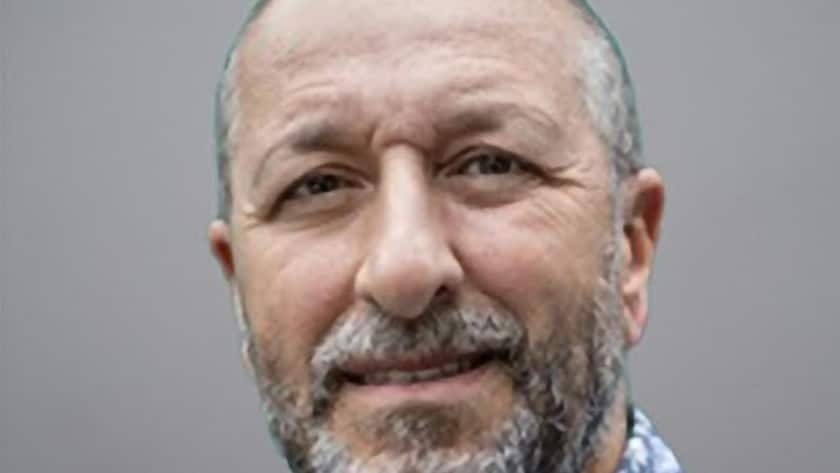cash.ch: Despite high inflation, corporates have increased profit margins to the highest level in decades. Will companies be able to realize excessive profits that you define with ‘greedflation’ and keep shareholders happy?
Albert Edwards: Change is coming. Central banks are forcing this change in direction by killing demand which is a strong weapon to fight against this type of inflation. Even the ECB published a report recently saying that a large proportion of this ‘greedflation’ is coming from corporations that increased their profit margins over-proportionally. And we don't see this only in the US.
This is why Central Banks increased rates over the last 15 months in a very steep manner?
It is a very efficient way to bring corporate profits in line with longer term trends and a blunt tool, but it always works eventually. However there are two things here. One is a cyclical element as well as a structural element.
So the cyclical problem is a potential recession?
A recession will indeed kill inflation. However inflation will come down anyway because oil prices, raw material costs and food prices are down now on a global basis by 20 to 30 percent year on year. Headline inflation will collapse close to zero. Obviously, raising interest sharply will accelerate the process to lower inflation.
Money supply is also collapsing. What is the impact given that inflation will move much lower?
The money managers that previewed higher inflation last year are now expecting deflation. They argue that the Central Banks have done too much. This will bring down not only inflation, but also profit margins. The greedflation however did damage in a way that populism is generally on the rise again as we can see in many countries.
Has Quantitative Easing (QE) over the last decade also contributed to populism?
We have seen growing populism with globalization and Quantitative Easing (QE)because of the very loose money policy that has increased inequality after the financial crisis in 2008. We have since then also seen very tight fiscal policy especially in Europe. People are angry and this is a problem for politicians. QE has been good for shareholders but by creating inflation this is the exact reason why policy makers are now increasing rates to the point that the economy might collapse. This will certainly not be good for shareholders.
So if inflation is going back close to zero, will rates over the next year head back close to zero too?
Yes, I think so. But this is just the cyclical component. Before the great financial crisis I wrote about the 'Ice Age' coming which is basically a cycle of secular stagnation with close to zero bond yields or even negative ones. Then this meant that growth and defensive stocks would do well versus value and cyclical stocks by learning from Japan with its secular stagnation. Now the International Monetary Fund (IMF) predicts that we will return to these very low interest rates once inflation seems to go away because of demographics and low productivity. This was also my basis thesis but now my view has changed. I now believe in the medium-term, inflation will stay higher for longer on a secular perspective.
Will core inflation stay higher too?
Interest rates will come down because of the recession. The Hedge Fund Manager Bob Prince of Bridgewater made this point as well that the markets don't realize that the recession is no cure for inflation. Headline inflation will therefore collapse, but core inflation will only come down maybe to three percent. But in the next cycle inflation will go up again. It will be a bit like in the 70'es, when there will be a second aggressive tightening round. I call this new period the "great melt". Inflation remaining sticky - something like a giant Swiss Fondue.
Are there other factors than inflation that rates come down in the first place?
From a cyclical perspective yes, but from a secular point of view it is definitely investment and surplus savings. During the pandemic we crossed the rubicon with direct financing of fiscal expenditures. For me this is fiscal madness combined with monetary madness. The zero interest rate policy and QE has benefitted Wall Street and leading markets into an everything bubble. Now especially in America during the pandemic, QE was injected into Main Street with fiscal measures.
Central Banks are tightening aggressively. Will fiscal policy follow?
I don't think that this is going to happen in Europe. If you go too loose with Fiscal and Monetary policy, you end up in a situation like in the UK with an everything bubble. One main reason for this was the excess savings. This is changing now as investment is becoming more dominant in driving inflation.
Can you explain this?
Investment will be much higher than secular savings for five reasons. First the supply chains have been too long, secondly defense spending will increase, third climate change investments will continue to grow, fourth inequality will lead to more public investment and the fifth argument is that business investment will be higher because of shortages in the labor market. Together with weak demographics I think the IMF will be right to predict much lower interest rates again. This is however a cyclical problem and not a secular one as we have seen in the 70's.
How will governments take influence and drive investment?
We see in Asia as well as in Europe that governments are pushing banks into climate change and green deal investments. During the Covid crisis we have seen Governments providing guarantees to banks so they could lend to businesses and consumers. You don't need QE, you need commercial banks to lend credit. Russell Napier has outlined how governments partners with commercial banks so credit is expanding very rapidly in the sectors which Governments choose.
When governments take influence on banks and investment this might be inflationary?
If you think about the inefficiency of investment you are correct. Take the UK, where the government invested in the 70’s into automakers that produced rubbish cars. Another point is that quantitative easing has led to the blow up of Silicon Valley Bank which didn't know what to do with the excess cash available. One can also say that if central banks over-interfere they create bad capital allocation. And for inflation, the push of excess savings into green deal investments is inflationary. If you remove this excess savings, this might be inflationary even if this might be ‘good inflation’ from investments into climate change.
With the reacceleration of inflation and this new investment cycle, this bodes well for corporate earnings again?
This is correct. However, equity markets will not be driven up by the same factors as in the past few years, where defensive, growth stocks and mainly tech benefitted heavily from lower bond yields. On a secular basis value stocks are now the place to be, even if on a cyclical basis tech stocks did fairly well this year. But it is clear that tech will do badly in the next recession. Tech investors haven't seen the impact of a recession since 2008. In the recession investors will find out that tech stocks are not growth stocks, but cyclical stocks with the wrong valuation. I also expected that this will be a huge drag on the US equity market with the recession coming next year. We will therefore see a big rotation into defensive stocks.
Investors should presumably be invested in stock markets that are less dependent on tech stocks?
Absolutely. Interesting point is that consumer non-cyclical stocks like food producers can become ridiculously expensive because people look for a safe haven due to the implosion of tech stocks.
Your portfolio has a 50 percent weighting in bonds. Will bonds outperform equity in the coming months?
People will embrace the IMF view that inflation was transitory, even if the transitory period was a bit longer than anticipated. I think bonds will do very well. We will however just see a higher low compared to the lows in 10 Year US Treasury Bond yields of 0,6 percent in 2022. Maybe we go back to one percent yield. I also think that Quantitative Tightening (QT) will soon stop. From an equity perspective, people now have a time window to position themselves more into a value oriented portfolio with defensive and industrial stocks including an increased commodity exposure.
Are commodities a good investment if we face a recession?
It is possible that we have a very moderate cyclical downturn. This is the opportunity to make a secular decision to increase the commodity proportion in the overall asset allocation. It is not just oil due to under-investment that you have to consider here. These commodities are needed in the green transition as well. So we also have a secular argument here. How far commodities are coming down in the first is hard to predict.
The UK stock market is having a high exposure to mining and defensive stocks. Is this a market to be invested in?
The UK stock market is very underowned and there is ‘no love’ at all. One important argument is that Sterling is much stronger now and more stable. But a trigger like performance is needed so this is going to change. Momentum and therefore momentum investors are needed as investors look a lot at liquidity levels and money flows. So with performance money follows. It is like chicken and eggs. And yes, the secular setup might be a good place to start.
European stock markets did very well over the last 12 months with healthy money flows and momentum looks good. Will this rally continue?
Compared to the US Equity Market the European Market is due to the composition still very cheap. There is a very long way in the US to go for the unwind of the tech dominance in the S&P 500 Index. Therefore Europe can outperform the US even in a lower bond yield environment.
Albert Edwards joined Société Générale in November 2007 as a Global Strategist after holding a similar post previously at Dresdner Kleinwort for almost 20 years. Albert began his career as an economist at the Bank of England in 1983. In his spare time, he spent 13 years as a justice of the peace (volunteer magistrate) in London and a similar time hearing appeals against compulsory detention under the UK Mental Health Act. Albert and his team have been ranked No. 1 in the Extel survey of Analysts every year since 2003, a record for the survey. He is most well known for having being an extreme equity bear (and bond bull) since 1997 as well as being extremely critical of central bank policies in the run-up to the bursting of the credit bubble.


